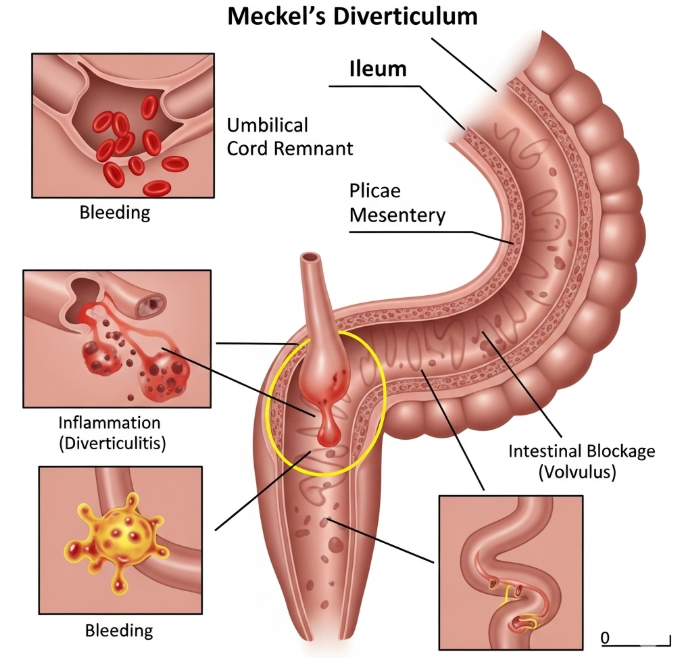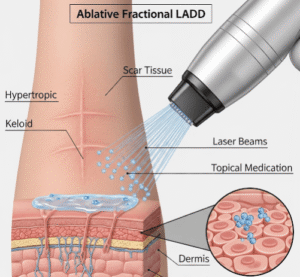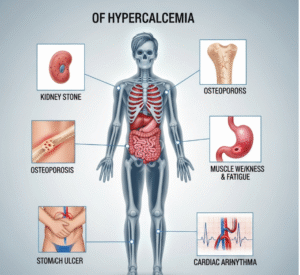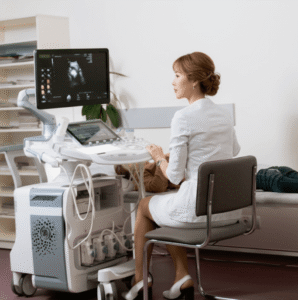Overview
Meckel’s diverticulum is the most common congenital abnormality of the small intestine, occurring in about 2% of the population. It is a pouch (diverticulum) present in the lower part of the small intestine, usually formed from leftover tissue of the embryonic yolk sac. While many people remain asymptomatic, complications such as bleeding, obstruction, or infection can occur, especially in children. In Korea, advanced diagnostic imaging and minimally invasive surgical treatments are widely available for managing Meckel’s diverticulum.
What is Meckel’s Diverticulum?
Meckel’s diverticulum is a true diverticulum, meaning it contains all layers of the intestinal wall. It often contains ectopic (abnormal) tissue such as gastric or pancreatic tissue, which may secrete acid and lead to ulceration or bleeding.
Symptoms
- Often asymptomatic
- Painless rectal bleeding (most common in children)
- Abdominal pain resembling appendicitis
- Intestinal obstruction (vomiting, constipation, abdominal swelling)
- Anemia due to chronic bleeding
Causes
- Failure of the vitelline duct (yolk sac connection to the intestine) to close during fetal development
- Presence of ectopic gastric or pancreatic tissue in the diverticulum
Risk Factors
- Male sex (higher risk of symptoms)
- Age under 10 years (more symptomatic cases)
- Presence of ectopic tissue
- Large diverticulum size
Complications
- Intestinal bleeding leading to anemia
- Intestinal obstruction (common in children)
- Diverticulitis (inflammation of the diverticulum, similar to appendicitis)
- Perforation and peritonitis
- Increased risk of volvulus (twisting of intestines)
Prevention
- No specific prevention, as it is a congenital condition
- Early diagnosis and treatment of complications help prevent severe outcomes
- In Korea, incidental detection during imaging or surgery may lead to preventive removal if risk factors are present
Treatment Options in Korea
Diagnosis
- Technetium-99m pertechnetate scan (Meckel’s scan): Detects ectopic gastric tissue
- CT or MRI of the abdomen
- Capsule endoscopy or double-balloon enteroscopy
- Blood tests for anemia due to bleeding
Medical Treatments
- Iron supplementation for anemia
- Blood transfusion in cases of significant bleeding
- Antibiotics if diverticulitis occurs
Surgical or Advanced Therapies
- Surgical removal (diverticulectomy): Standard treatment for symptomatic cases
- Bowel resection with anastomosis: If the diverticulum has caused severe complications (obstruction, perforation)
- Minimally invasive laparoscopic surgery is commonly performed in Korean hospitals, leading to faster recovery and fewer complications
Rehabilitation and Support
- Post-surgical follow-up for wound healing and intestinal function
- Nutritional support for recovery, especially in children with anemia
- Monitoring for long-term gastrointestinal health













